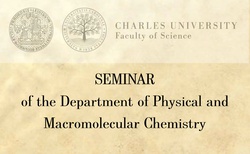Modelling Ionic liquids. From bulk behavior to supercapacitor applications.
by , Prof. Christian Holm
In the first part of the talk we present an ab initio parametrization scheme for explicitly dipole-polarizable force fields for the simulation of an ionic liquid. The scheme allows for, in principle, arbitrarily coarse-grained representations. All parameters in the force field are derived from first-principles, based on simple physical arguments. Only one fit parameter enters the parametrization, a global scaling factor for the size of the particles, which is adjusted to reproduce the experimental mass density. As important examples and for the first time, polarizable coarse-grained force fields are derived for 1-alkyl-3- methylimidazolium cations with varying alkyl-chain lengths (alkyl = ethyl, butyl, hexyl) and hexafluorophosphate and tetrafluoroborate anions. Our findings are in good agreement with experimental results and results of further atomistic simulations. Hence, the force fields can be faithfully used where polarizability is expected to play a significant role, such as simulations of energy storage devices.
In the second part we look at nanoporous supercapacitors that have attracted much attention recently as energy storage devices with remarkable cyclability and high power and energy densities. However, their use in high frequency applications might be limited by a relatively slow charging process. In this molecular dynamics simulation study of a slit-pore capacitor system, we focus on the physics and optimization of charge/discharge cycles. We will see that step-voltage charging is slow because the coions become trapped in narrow pores of supercapacitor electrodes. To avoid such trapping, a slow voltage-sweep charging is considered, which allows to accelerate the overall charging process substantially. However, we will demonstrate that a step-voltage, rather than sweeping, is preferable for fast discharging.


